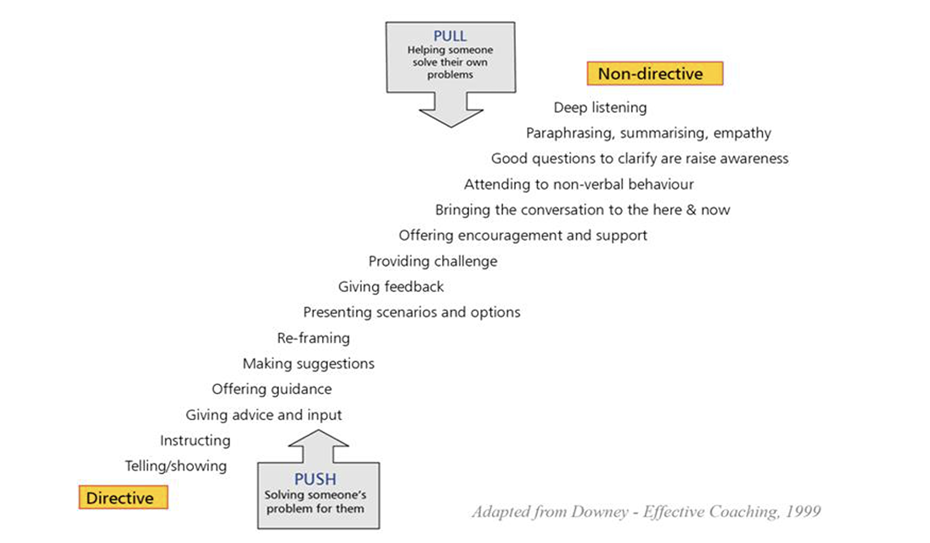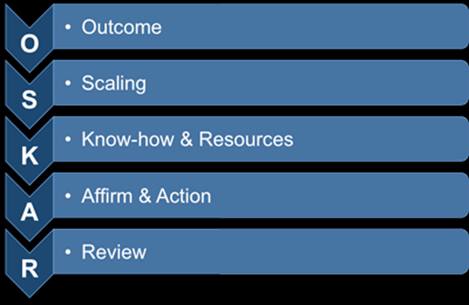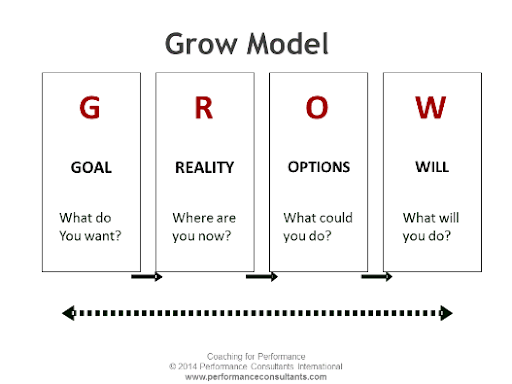John Crace talks about the one to one tutorial as:
"a forum where both teachers and students can discuss progress and set targets - and there is a great deal of evidence to indicate that it has played a key role in raising standards and student retention".
(Crace, 2002, online)
Having effective one to one conversations with Advisees
Some general principles for effective one to ones are that the Advisor should use:
- a structure for the conversation, for example, see the coaching frameworks below (whilst appreciating that conversations do not follow a linear pattern);
- active listening;
- open questioning;
- constructive challenging;
- reflecting back, paraphrasing and summarising.
Deciding on the style of the conversation (and agreeing this with the Advisee) can be useful. For example, the agreed style could be one of the following:
- Teaching - where specific teaching goals are the focus
- Mentoring - where skills, knowledge and experience are shared/passed on
- Coaching - a non-directive conversation between thinking equals
As with teaching and session planning, there isn’t a secret formula for a perfect one to one. In the EXPLORE sessions on Academic Advising, we look at case study examples and undertake role play to discuss this further. Carrying out effective one to ones with students is a skill which can be learned through practice and reflection and as you get better so will the impact on your students’ progress and outcomes. Some useful guidelines for effective one to ones are as follows.
The Academic Advisor should:
- prepare for them, for example by reading notes from previous one- to- ones, and speaking to other tutors and support staff about progress. Institutional data on student attendance and performance can inform your discussion. Most areas use Moodle for this information;
- appear pleased to see the students and have a sincere and calm approach (even if you are busy and have competing priorities;
- explain at the start of the meeting what things you would like to cover, but ensure you are clear that students can discuss anything that they have on their own agenda;
- use more open questions to allow students and yourself to explore their thoughts and feelings;
- record details of the conversation using the dashboard system for future reference. Many areas use 'virtual office' on Moodle (a site listing all advisees) to record notes from meetings in one location (and also to book meetings);
- display active listening;
- challenge,reframe, reflect back and summarise where appropriate;
- start with and praise the positive things that students have, or feel they have, tried or achieved;
- be honest about any areas that students need to improve;
- be clear about the consequences of not improving;
- encourage the students to reflect and have a clear, open and honest discussion about progress against previous SMART targets (these may be academic, engagement or personal);
- allow the discussion to develop SMART targets that are stretching but are agreed between you and the students;
- use scaling and solution-focused coaching techniques where appropriate (see below);
- make clear your desire to help resolve any problems where it is possible;
- finish on a positive and ask the student to summarise the agreed targets before the end of the meeting;
- ensure dates for the review of these targets are agreed before the meeting finishes.
Adapted from Lochtie et al, 2018, pp. 112-3



